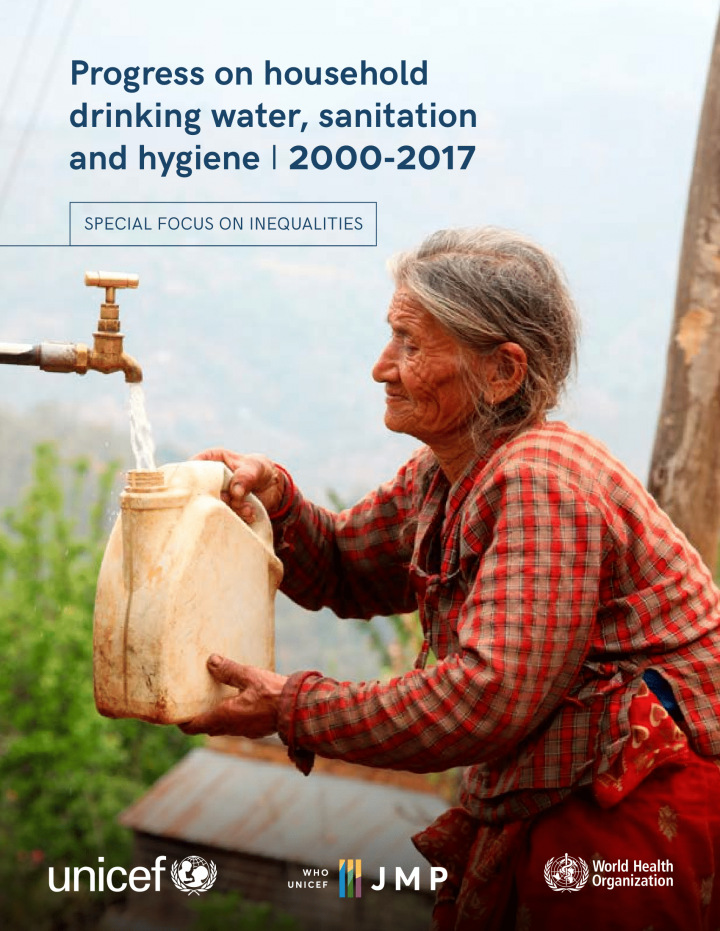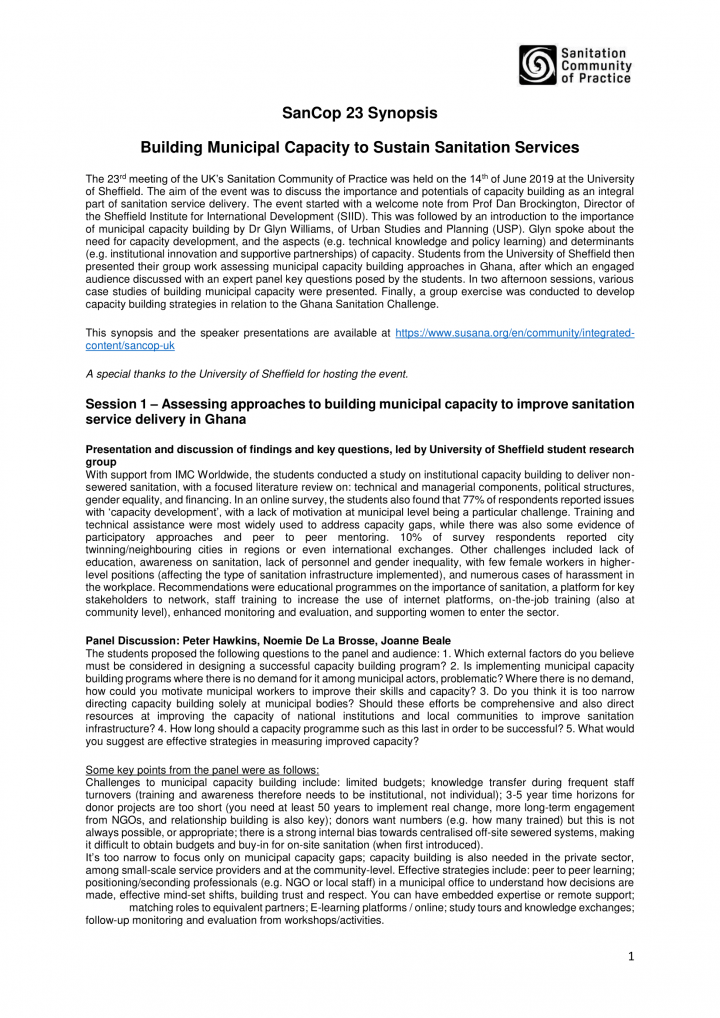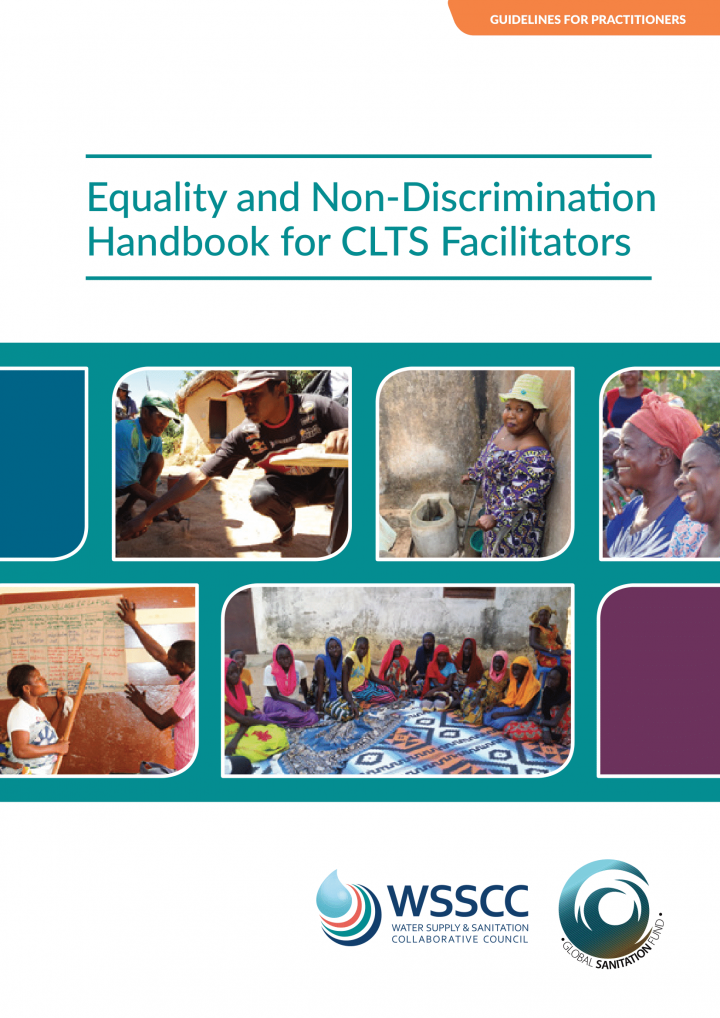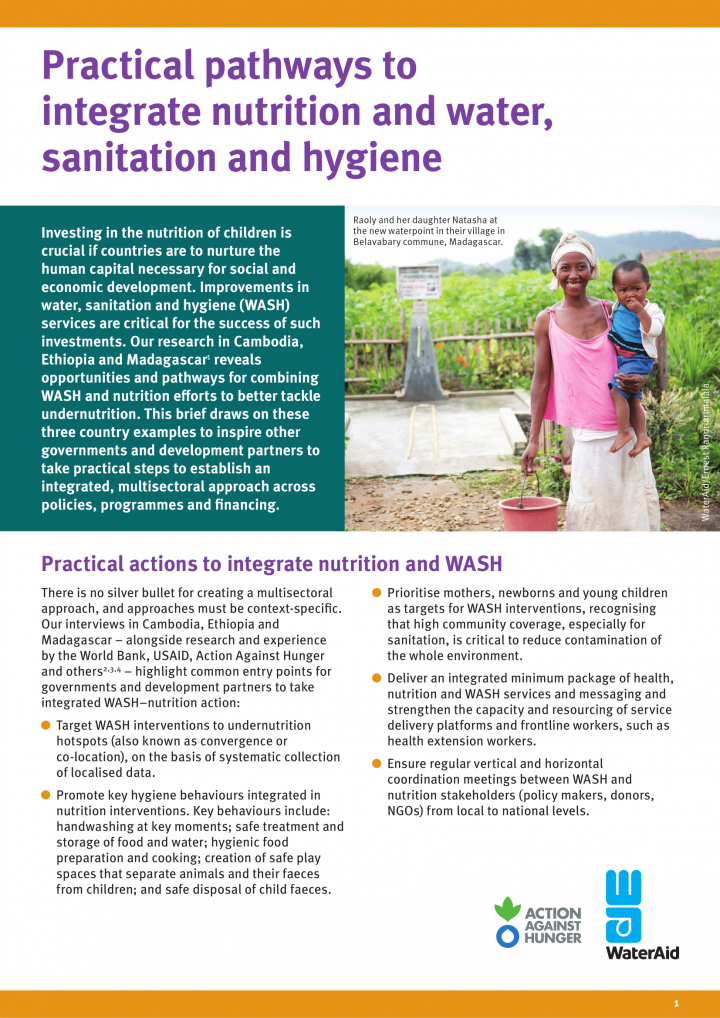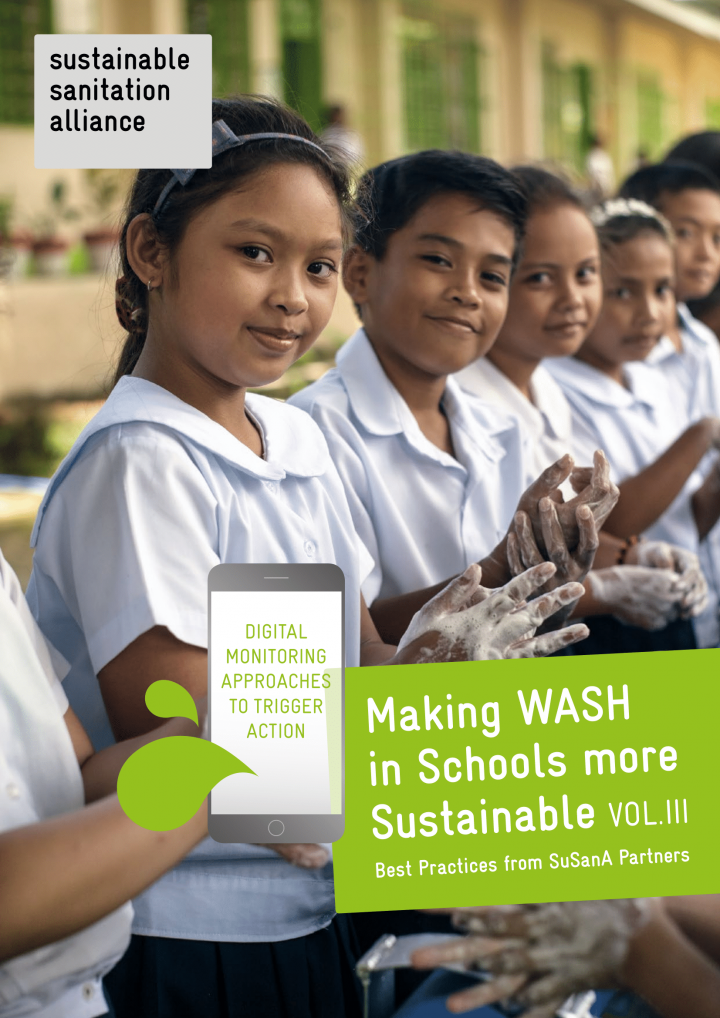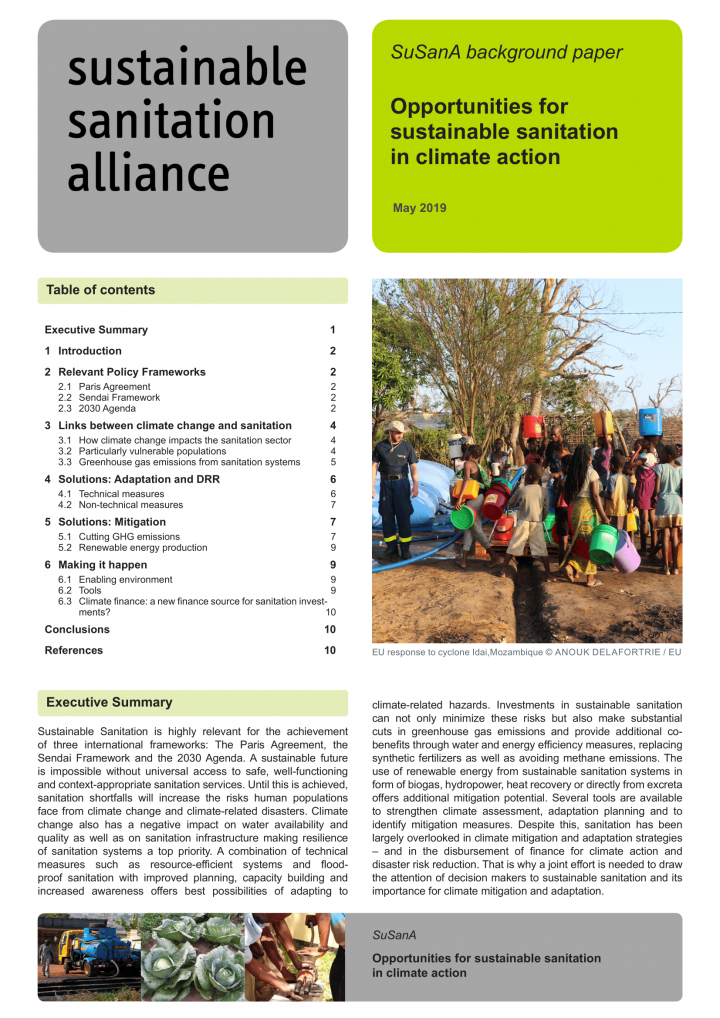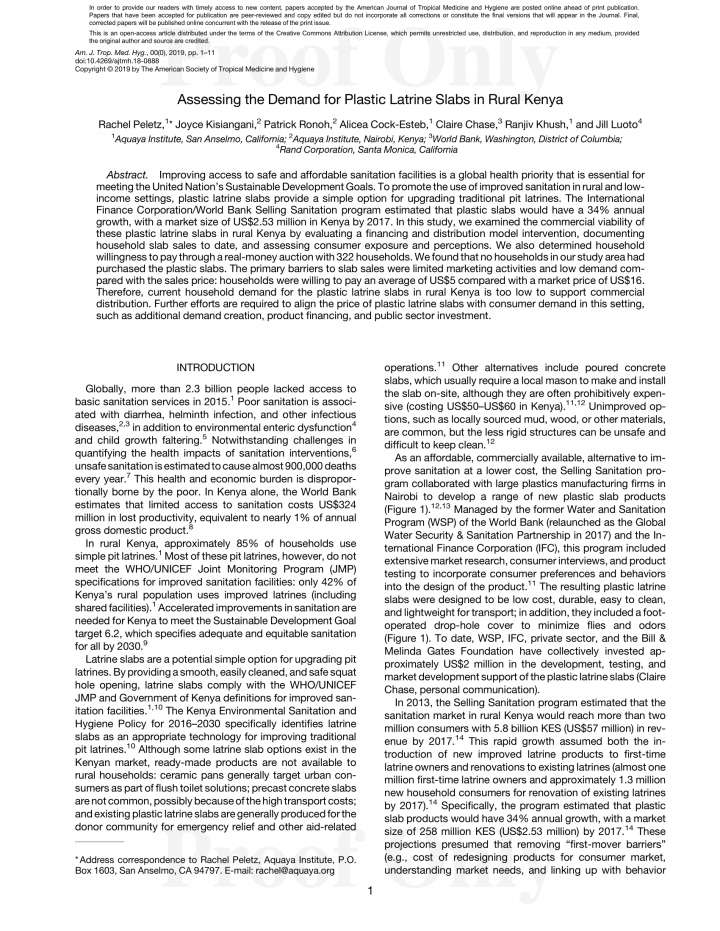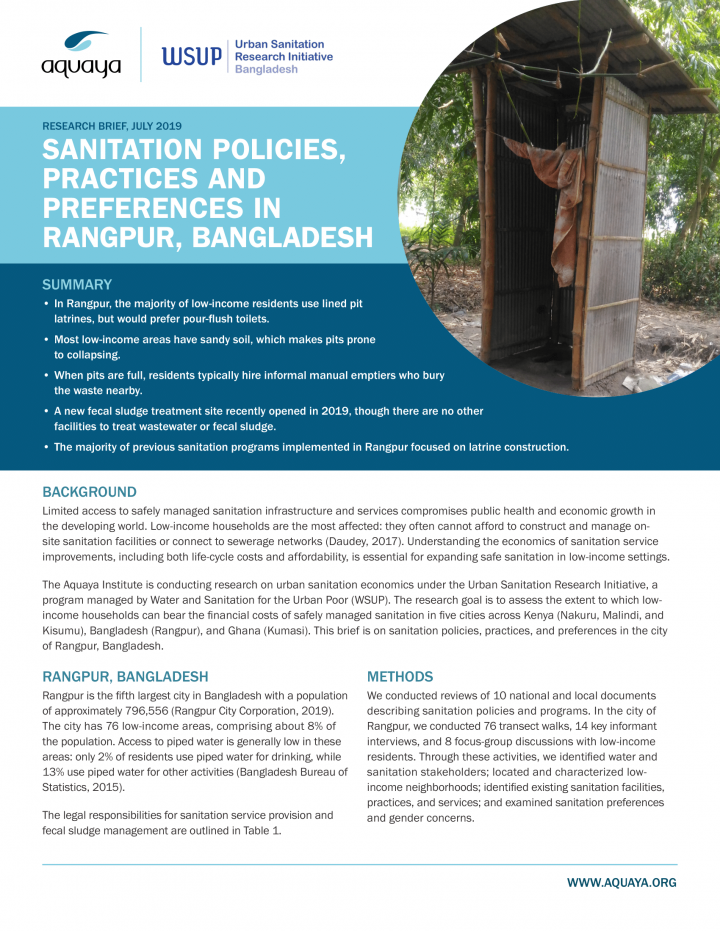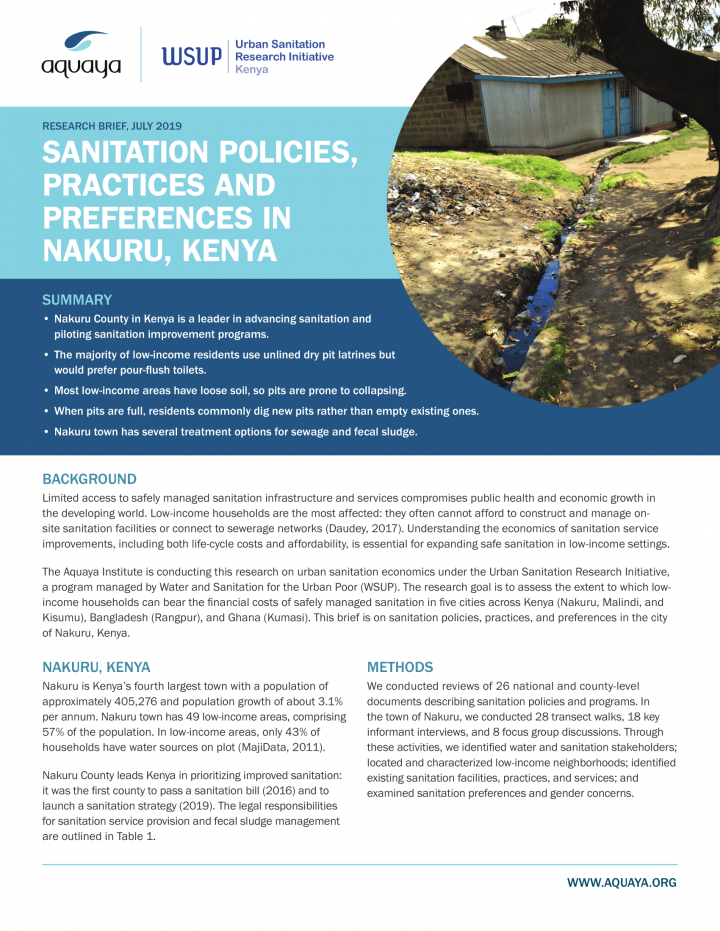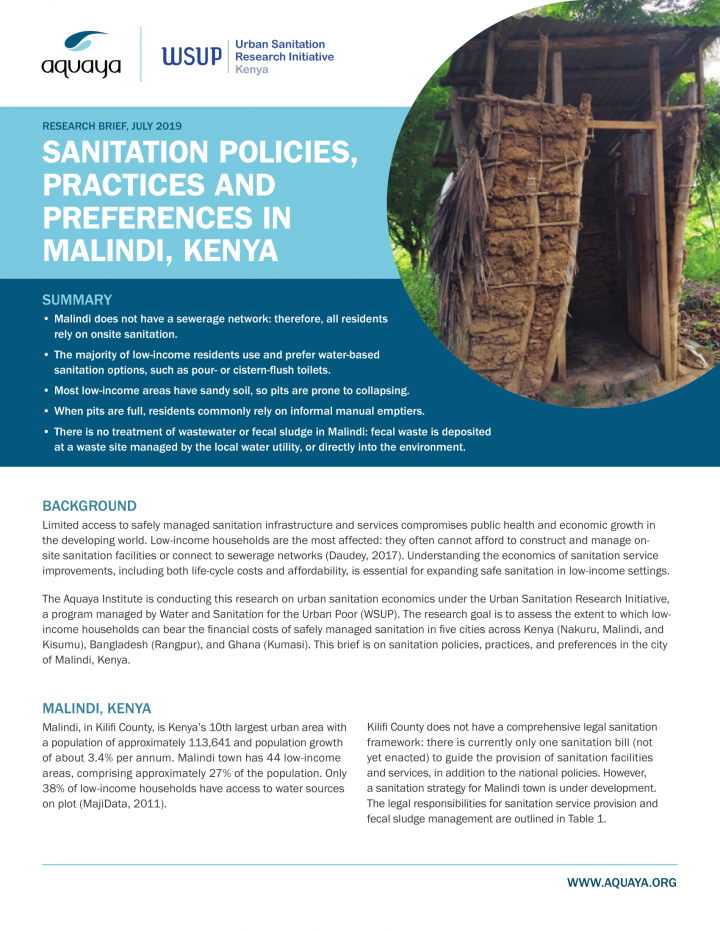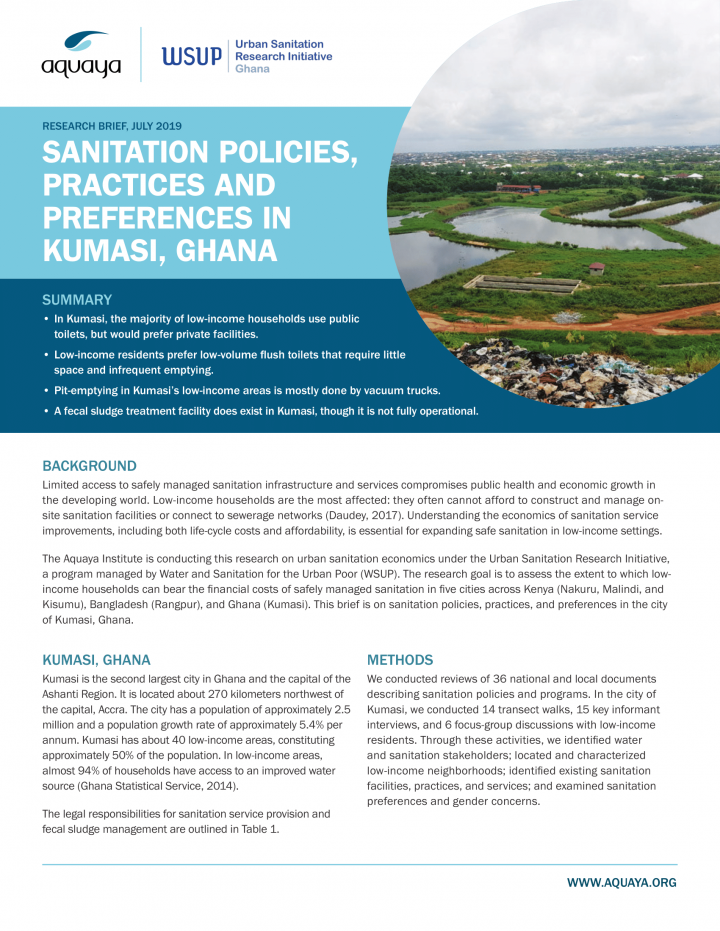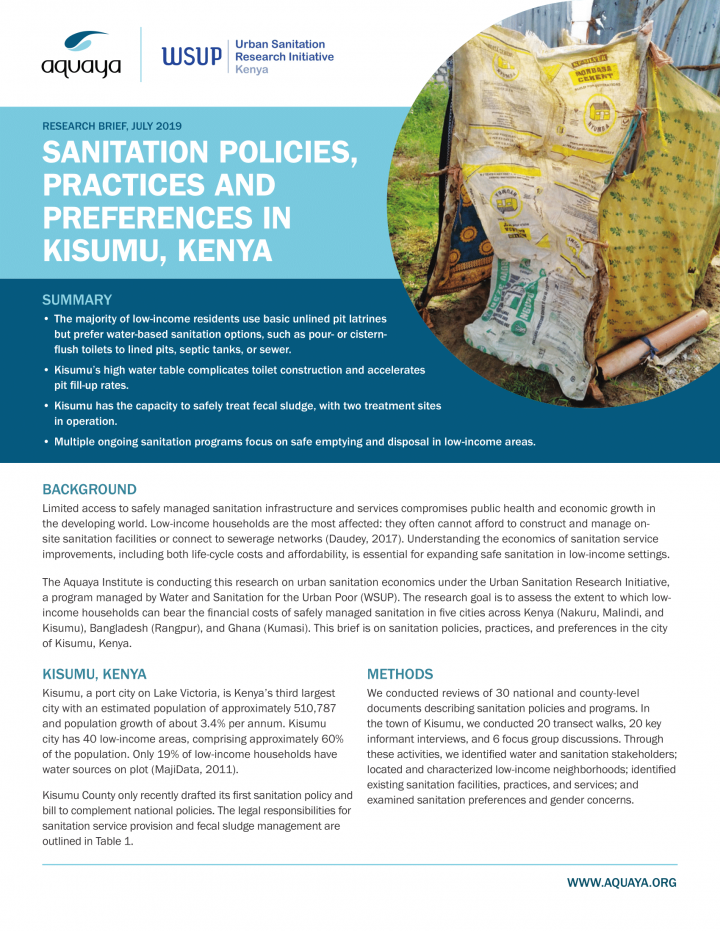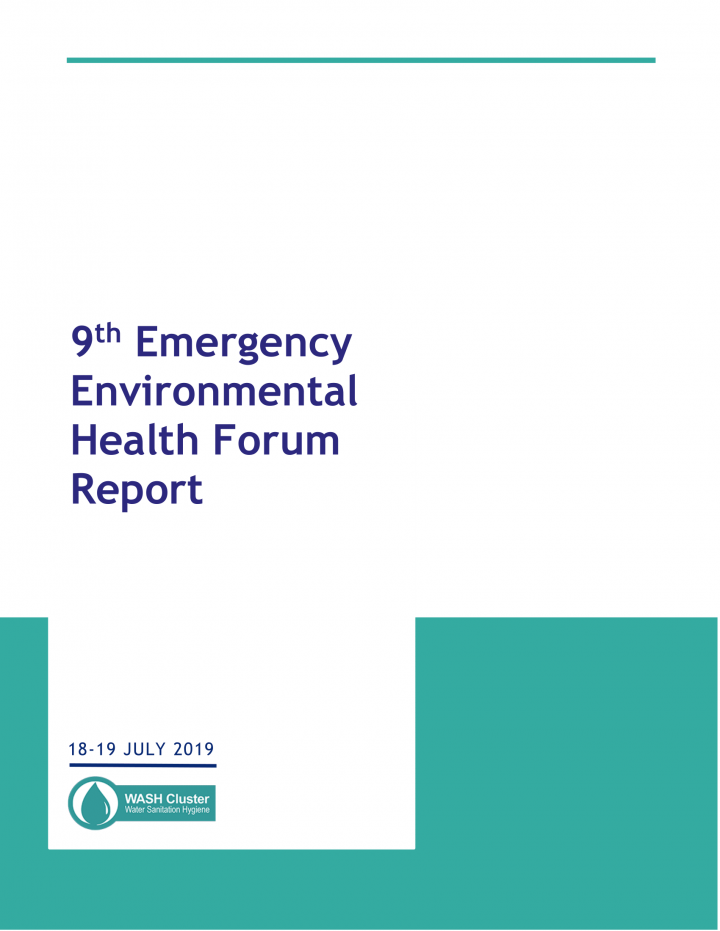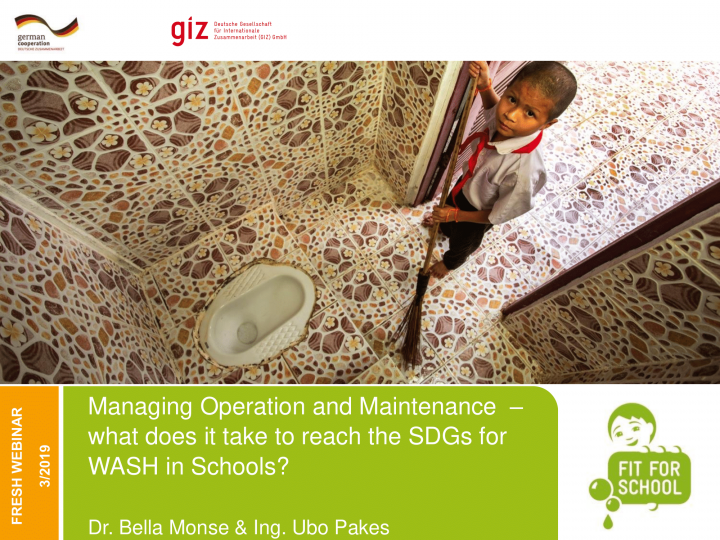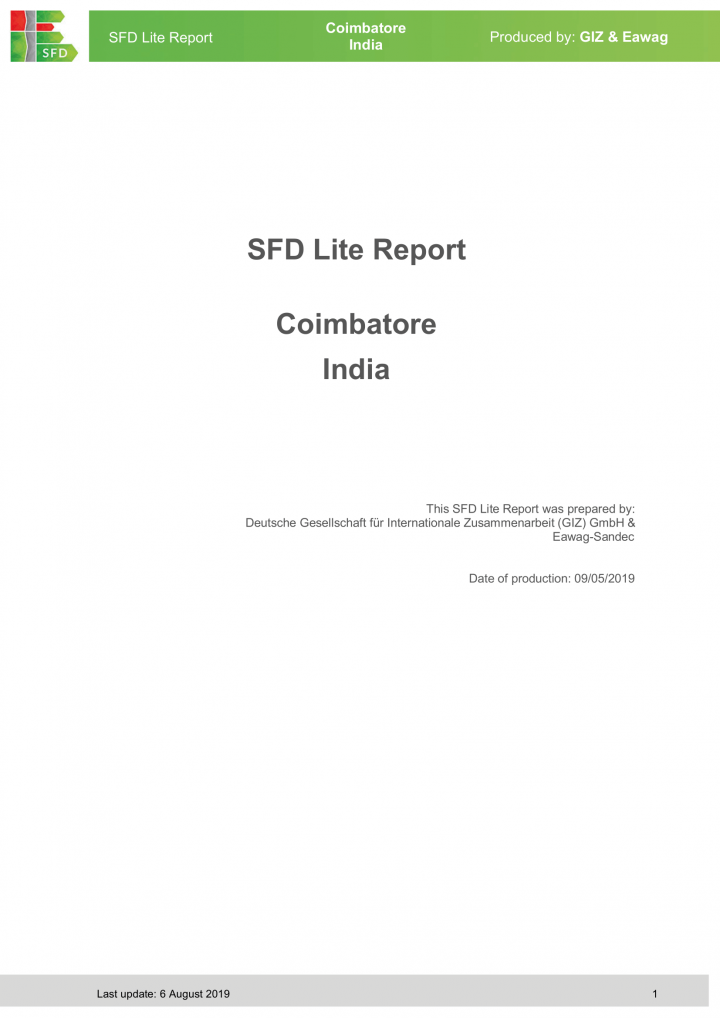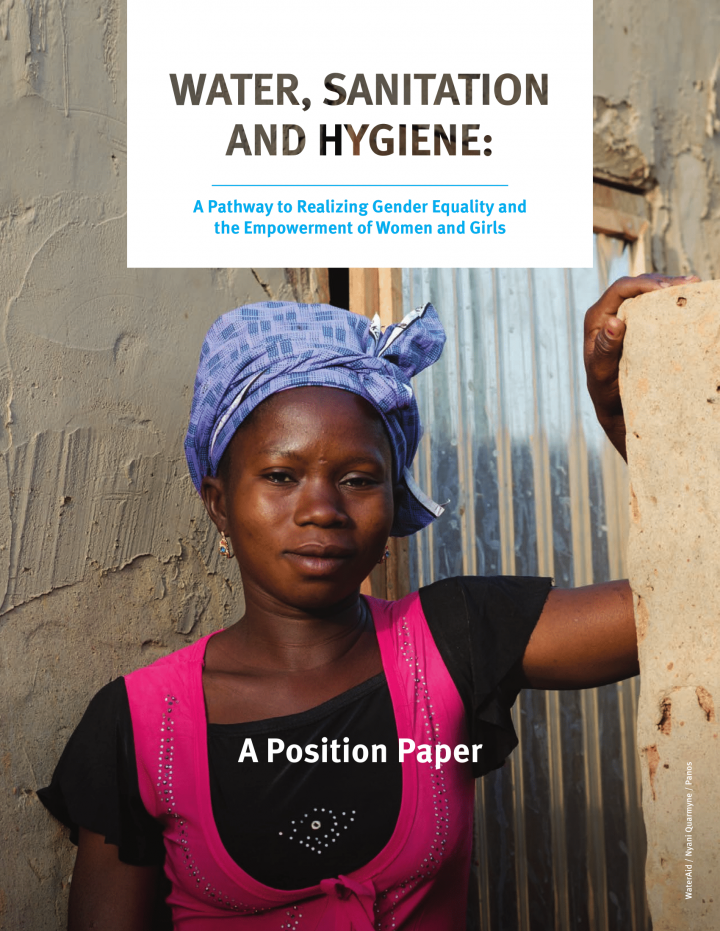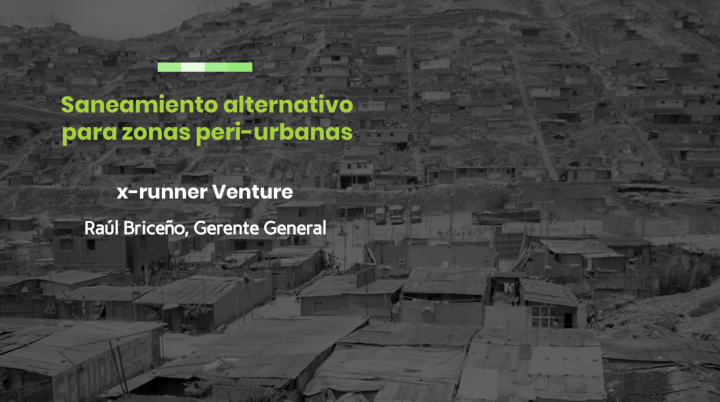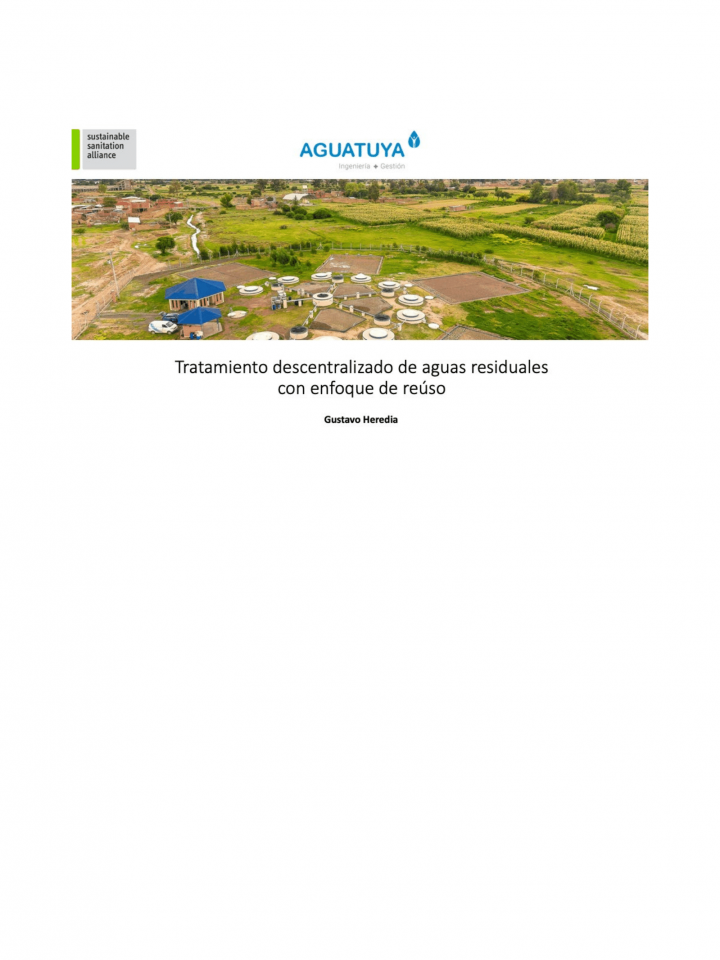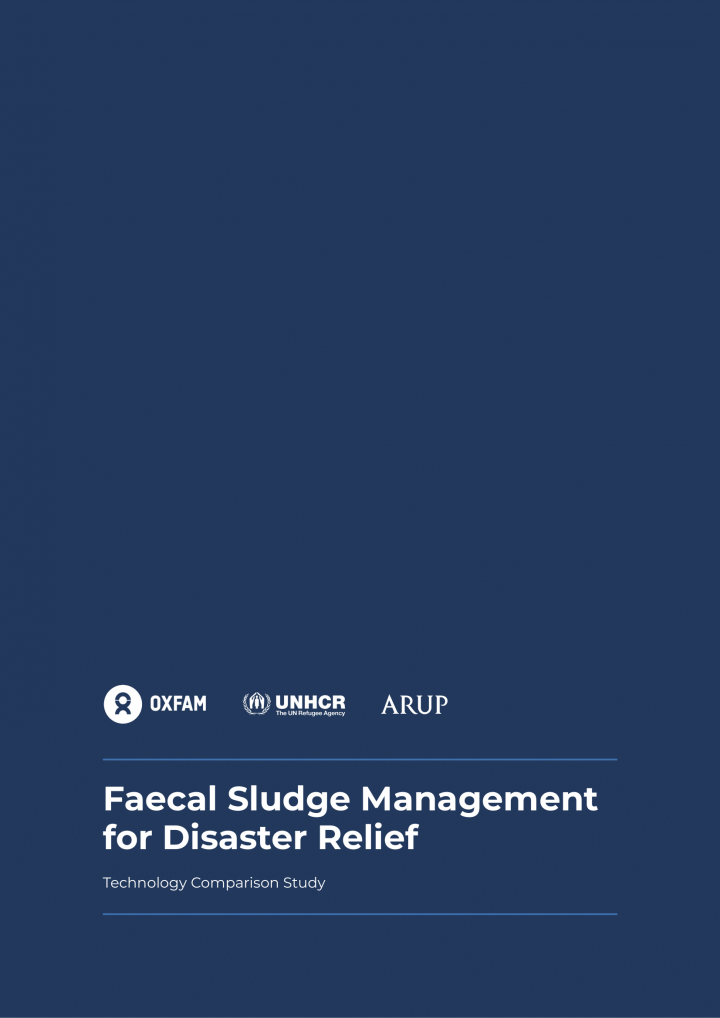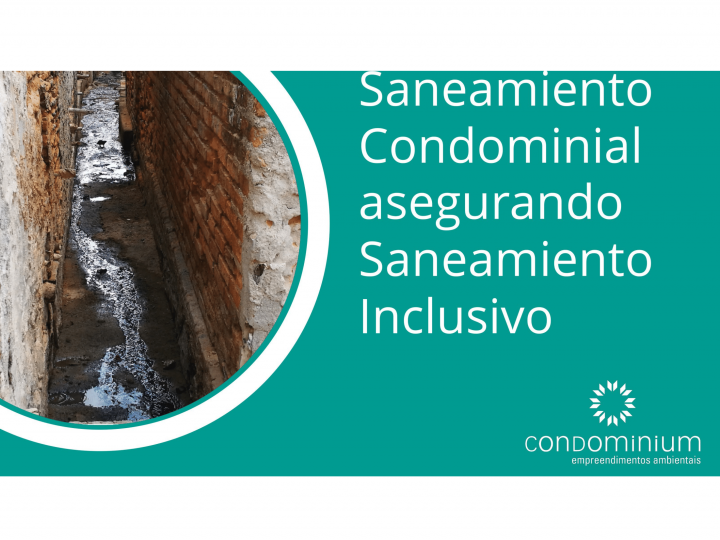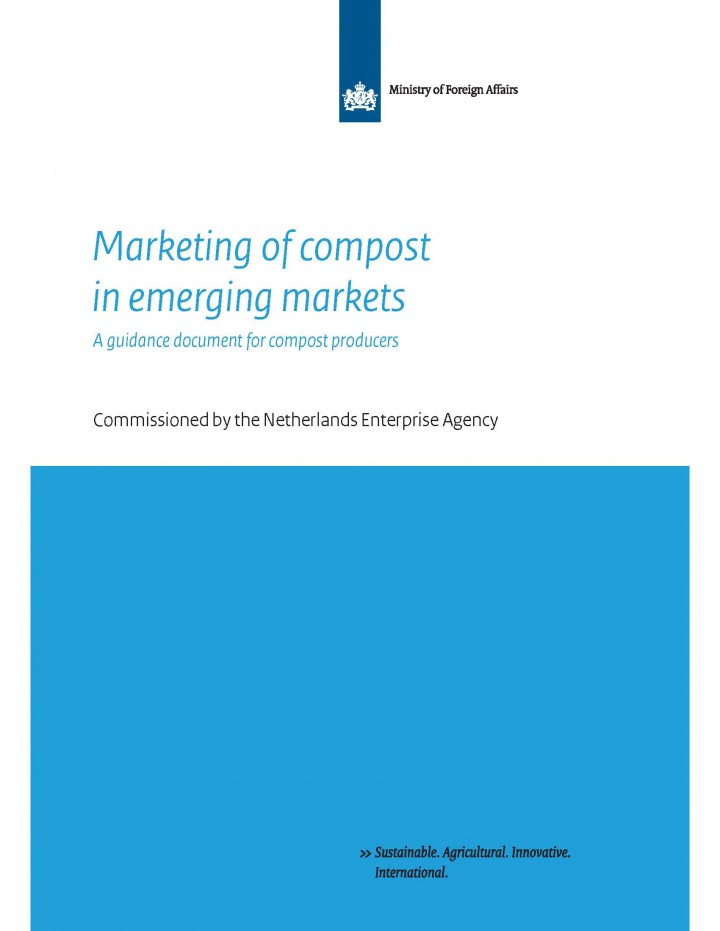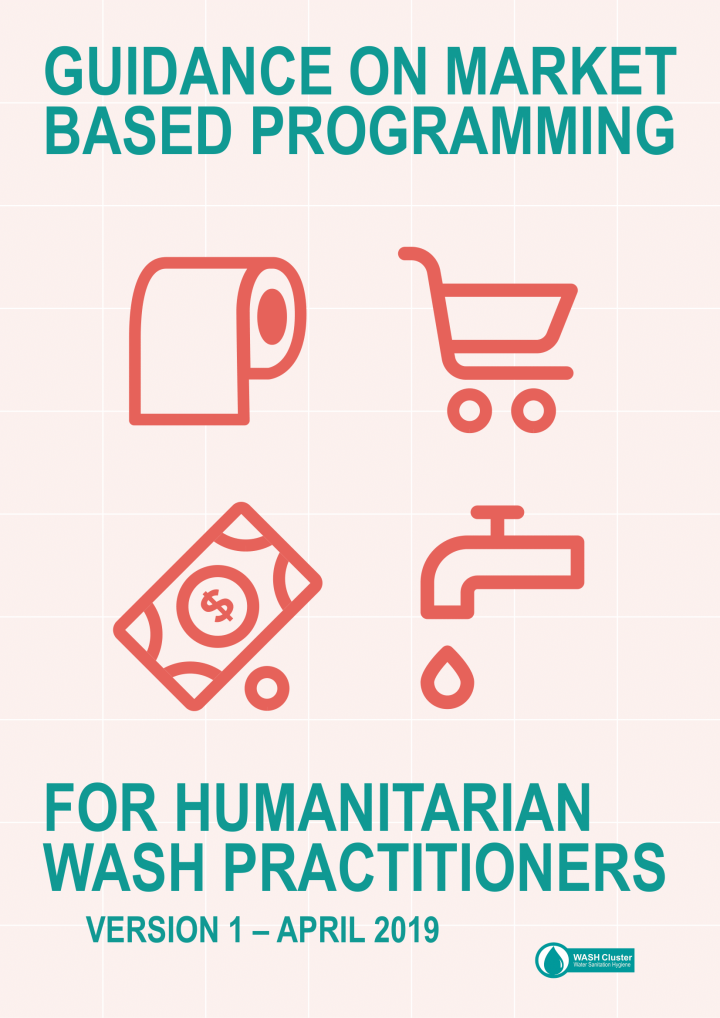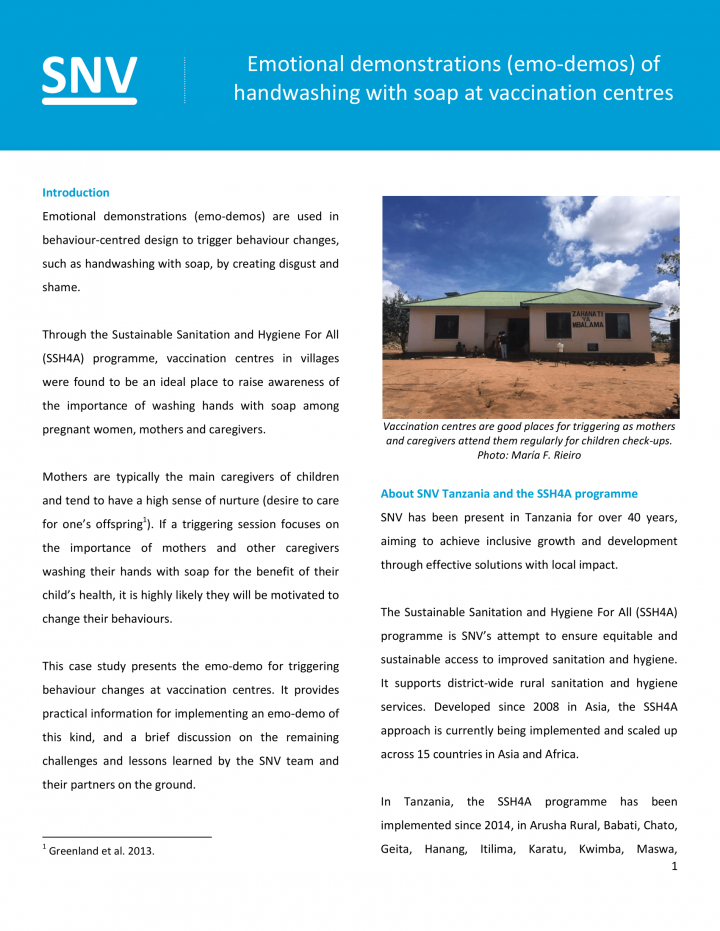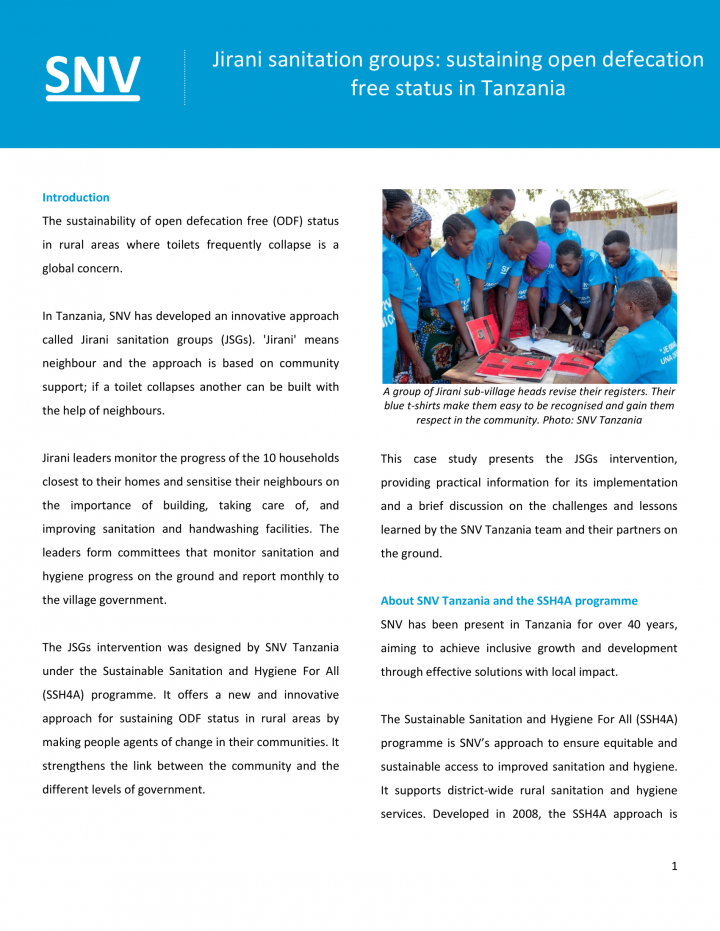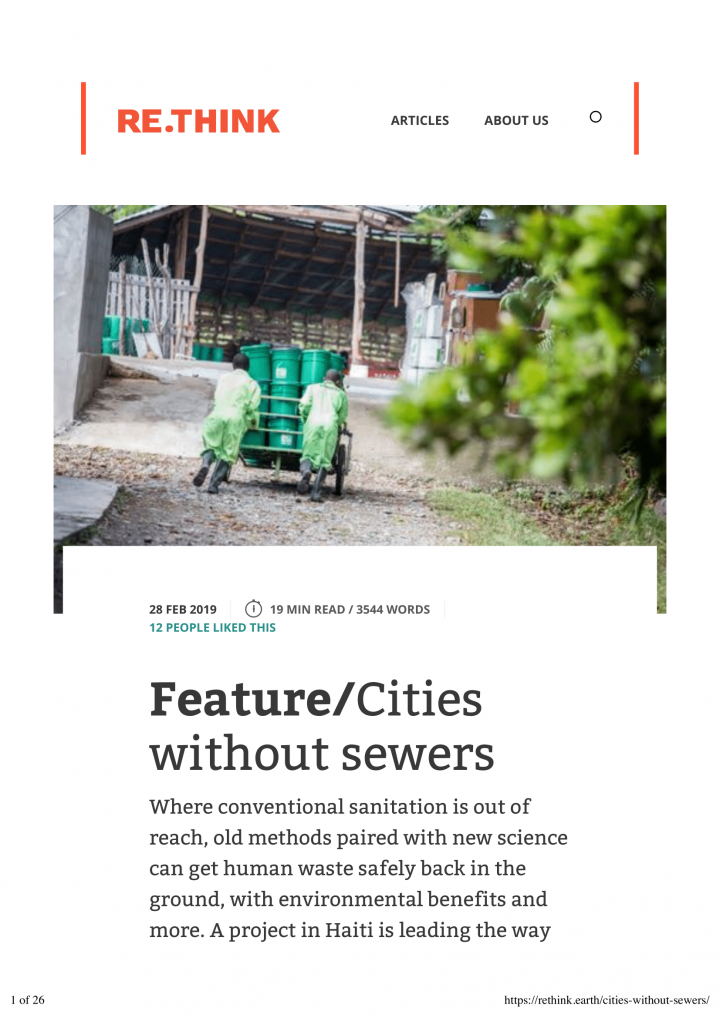Searching for information on Sanitation Workers?
The Sanitation Workers Knowledge + Learning Hub is the best source for all current news, trends, articles and updates on sanitation workers rights around the world.
The World Health Organization and United Nations Children’s Fund (WHO/UNICEF) Joint Monitoring Programme for Water Supply, Sanitation and Hygiene (JMP) produces internationally comparable estimates of progress on drinking water, sanitation and hygiene (WASH) and is responsible for global monitoring of the Sustainable Development Goal (SDG) targets related to WASH. The JMP has recently published …
The 23rd meeting of the UK’s Sanitation Community of Practice was held on the 14th of June 2019 at the University of Sheffield. The aim of the event was to discuss the importance and potentials of capacity building as an integral part of sanitation service delivery. Students from the University of Sheffield presented their group work assessing municipal capacity building approaches in Ghana, …
The Equality and Non-discrimination (EQND) and Community-led Total Sanitation (CLTS) Handbook provides practical guidance for ensuring that behaviour change interventions leave no one behind. Drawing on experience from across the sector, this handbook is specifically targeted towards those implementing or supervising CLTS interventions at the community level. Key features include a summary of …
Investing in the nutrition of children is crucial if countries are to nurture the human capital necessary for social and economic development. Improvements in water, sanitation and hygiene (WASH) services are critical for the success of such investments. Our research in Cambodia, Ethiopia and Madagascar reveals opportunities and pathways for combining WASH and nutrition efforts to better tackle …
This publication is the follow up of the first and second volume of WASH in Schools best practices by SuSanA partners. This third volume focuses on the topic of monitoring and evaluation (M&E). The aim is to show how digital approaches for M&E can be used to trigger action for improvements in WASH in Schools.
It introduces the WHO/UNICEF JMP core and expanded questions and indicators for …
Sustainable Sanitation is highly relevant for the achievement of three international frameworks: The Paris Agreement, the Sendai Framework and the 2030 Agenda. A sustainable future is impossible without universal access to safe, well-functioning and context-appropriate sanitation services. Until this is achieved, sanitation shortfalls will increase the risks human populations face from climate …
Improving access to safe and affordable sanitation facilities is a global health priority that is essential for
meeting the United Nation’s Sustainable Development Goals. To promote the use of improved sanitation in rural and low-income settings, plastic latrine slabs provide a simple option for upgrading traditional pit latrines. The International Finance Corporation/World Bank Selling …
The Aquaya Institute is conducting research on urban sanitation economics under the Urban Sanitation Research Initiative. This brief is on sanitation policies, practices, and preferences in the city of Rangpur, Bangladesh.
SUMMARY
• In Rangpur, the majority of low-income residents use lined pit latrines, but would prefer pour-flush toilets.
• Most low-income areas have sandy soil, …
The Aquaya Institute is conducting this research on urban sanitation economics under the Urban Sanitation Research Initiative. This brief is on sanitation policies, practices, and preferences in the city of Nakuru, Kenya.
SUMMARY
• Nakuru County in Kenya is a leader in advancing sanitation and piloting sanitation improvement programs.
• The majority of low-income residents use unlined …
The Aquaya Institute is conducting this research on urban sanitation economics under the Urban Sanitation Research Initiative. This brief is on sanitation policies, practices, and preferences in the city of Malindi, Kenya.
SUMMARY
• Malindi does not have a sewerage network: therefore, all residents rely on onsite sanitation.
• The majority of low-income residents use and prefer …
The Aquaya Institute is conducting this research on urban sanitation economics under the Urban Sanitation Research Initiative. This brief is on sanitation policies, practices, and preferences in the city of Kumasi, Ghana.
SUMMARY
• In Kumasi, the majority of low-income households use public toilets, but would prefer private facilities.
• Low-income residents prefer low-volume flush …
The Aquaya Institute is conducting this research on urban sanitation economics under the Urban Sanitation Research Initiative. This brief is on sanitation policies, practices, and preferences in the city of Kisumu, Kenya.
SUMMARY
• The majority of low-income residents use basic unlined pit latrines but prefer water-based sanitation options, such as pour- or cistern-flush toilets to lined …
The 9th Emergency Environmental Health Forum took place from 18th -19th 2019 in Geneva, Switzerland. It brought together water, sanitation and hygiene (WASH) experts. The forum provided an opportunity to exchange recent field experiences and explore innovative approaches amongst over 110 attendees and discuss ways for future action and interventions for WASH in emergencies.
EEHF 2019 …
This FRESH webinar will Introduce a costing tool to calculate the budget need for schools to provide the basic service level for drinking water, usable sanitation, and handwashing with soap. The tool provides school heads with an easy to manage app, which calculates the annual cost per student depending on local condition and local prices.
How much do they need to keep aside for consumables, …
Coimbatore is the second largest city in terms of area in the state of Tamil Nadu. It is one of the fastest growing secondary cities in India and a major hub of textiles, industries, commerce, education, information technology, healthcare and manufacturing in Tamil Nadu. It is administered by the Coimbatore City Municipal Corporation (CCMC).
The 76% of the excreta properly managed originates …
The Canadian water, sanitation and hygiene (WASH) sector welcomes Canada’s new Feminist International Assistance Policy, a bold rights-based framework to guide Canada’s international development efforts that places gender equality and the empowerment of women and girls at the heart of poverty reduction. Based on the contributions of 17 organizations and individuals, this position paper …
On behalf of Oxfam, Arup have conducted a technical comparison study on Faecal Sludge Management at the Rohingya camps close to Cox's Bazar (CXB), Bangladesh. The aim of the study is to draw conclusions on best practice FSM for disaster relief, from evidence gathered through practical experience. The study used existing available data to inform the analysis and in many cases these datasets are …
The recycling of organic residues into compost has a number of advantages. It avoids the wasting valuable organic material to landfills and reduces associated emissions to water, soil and air. It generates a product that contributes to long-term soil quality, as compost contains a high amount of stabilised organic matter. Finally, compost may also reduce the need for artificial fertilisers, as it …
The purpose of this document is to provide practical guidance in preparedness, assessment, program design, implementation and monitoring related to Market-Based Programming (MBP) in humanitarian WASH assistance, and more specifically on:
• How to identify linkages between markets and WASH services & goods;
• How market based programming can complement and improve WASH programming;
• …
Emotional demonstrations (emo-demos) are used in behaviour-centred design to trigger behaviour changes, such as handwashing with soap, by creating disgust and shame.
Through the Sustainable Sanitation and Hygiene For All (SSH4A) programme, vaccination centres in villages were found to be an ideal place to raise awareness of the importance of washing hands with soap among pregnant women, mothers …
The sustainability of open defecation free (ODF) status in rural areas where toilets frequently collapse is a global concern.
In Tanzania, SNV has developed an innovative approach called Jirani sanitation groups (JSGs). 'Jirani' means neighbour and the approach is based on community support; if a toilet collapses another can be built with the help of neighbours.
This case study presents the …

